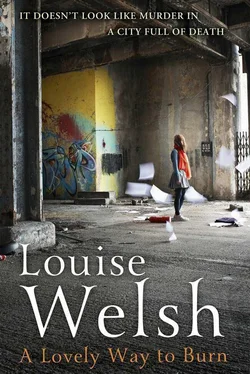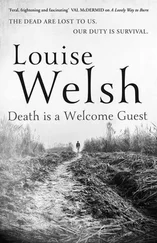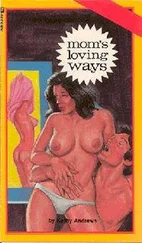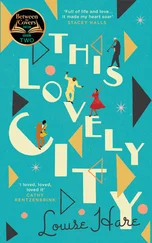Please pray for me.
Iqbal
Stevie found an unopened bottle of bubblebath at the back of the bathroom cabinet. Its label was decorated with a jolly Santa Claus holding a sprig of holly in his hand. She wondered if it had been a Christmas present and, if so, who had given it to Iqbal. Had he simply never got round to opening it, or kept it for some other reason? She couldn’t find a basin and so she took a large bowl from the kitchen, carried it upstairs to the bathroom and filled it with warm water. She poured a capful of bubblebath into the bowl and splashed a hand around in the water. Foam frothed on its surface, the bubbles horribly festive. A familiar, clean scent rose from it, more suitable to a child’s bathtime than to a corpse’s laying-out.
Stevie set the warm water at Iqbal’s bedside, soaked a fresh flannel, and began to wipe his body with it. He had asked her to pray for him, but her mother and she had never been churchgoers. She didn’t even know what religion Iqbal had belonged to. In the end she settled for the Lord’s Prayer, stumbling a little over the final lines,
For thine is the kingdom,
the power, and the glory,
for ever and ever.
Amen.
When she was finished she patted Iqbal’s skin dry with a towel, and then found a clean sheet and wound him tightly in it. Were it not for the whiteness of the cotton, his body would have resembled a mummy’s, lifted free of its sarcophagus. Stevie had taken a piece of paper and a marker pen from the desk. She wrote his name clearly, IQBAL, and placed the paper on top of the body.
‘Not exactly a good send-off, I’m afraid, but the best I can do.’
Stevie touched her fingers to her lips and placed the kiss she had been too squeamish to give his dead skin, on to Iqbal’s parcelled forehead. She felt calm, as if the act of washing and binding him had soothed her.
There was a typewritten letter on top of the small pile of pages that Iqbal had left next to Simon’s laptop. Stevie saw a faint reflection of herself in the desk’s glass surface and slid the papers closer, erasing the gaunt face, the ragged hair. She set the letter aside, uncertain that she could survive the sound of Iqbal’s voice in her head again, so soon after reading his suicide note. The rest of the pages looked impersonal, reams of numbers cumulating into calculations. Stevie recognised the layout and realised that Iqbal had printed the data from Simon’s laptop. She worked her way slowly through it, careful to keep the pages in order. Iqbal had highlighted particular numbers and lines of figures, perhaps thinking that would make it easier for a non-statistician to understand. Despite his efforts, Stevie found it impossible to make sense of what was in front of her. She turned to the letter, dread in her belly, but as soon as she started to read, she knew that Iqbal had written it before the sweats had touched him, back when he had thought he might survive. There was no greeting and no leave-taking, no plea for her affection. This was the computer guru and statistician speaking.
A brief summary of findings
The research team analysed their original data in the usual way.
i.e. they attempted to ascertain whether positive results were due to their new treatment, or simply owing to chance. After studying the data, they concluded the possibility that the positive results were mere chance was one in a thousand. Drugs have been licensed on far lower probabilities. It was as close to proof that the treatment was effective as they could have hoped for.
What I believe Simon eventually realised, and what I discovered when I redid the team’s calculations, was that along the way someone had made a catastrophic statistical error. The error had been absorbed and repeated. There was in fact only a one in ten chance that the treatment had been effective, way below the balance of proof required.
This appears to have been a genuine mistake, a miscalculation in the figures.
I was helped in my own calculations by a coded mathematical summary Simon included amongst the documents, a sophisticated text it was a pleasure to grapple with. This suggests to me that he wanted to keep what he had found secret, but detectable to someone who would know how to look for it in the right way.
Stevie leant back in the chair and looked up at the ceiling. Simon had made a mistake, a costly, devastating mistake, but a mistake all the same.
She turned on the laptop and scrolled through the documents, searching for something else that might have made the computer a target, but it appeared that Simon had acquired the machine purely for the purpose of storing the drug trial data. The only unrelated document was the photograph of the two of them together in Russell Square,
Stevie looked up at the ceiling again. A small cobweb she was sure Iqbal would never have allowed hung gossamer-high above her head. She had seen photographs of Chernobyl: abandoned homes, factories and schools that had been overrun by nature until they looked as if they had belonged to some lost civilisation. It was easy to imagine London’s pavements cracked by weeds, colonies of deer roaming Oxford Street, dust gathering on the tables of Caffè Nero and Starbucks, posters for action movies wilting from bill-boards and Underground tunnel walls. She sat up. Those kinds of thoughts had the potential to drag her into the same shadows that had claimed Iqbal.
Buchanan had insisted that, if Simon had been murdered, then the blame lay with his gambling associates, but the chemist had also been adamant that the treatment was effective. If he was wrong about one, then he might be wrong about the other. The question was, did Buchanan genuinely believe what he had told her, or was he lying?
She still had Hope’s gun. She could go to the lab, put the barrel to Buchanan’s head and demand that he tell her the truth. Stevie tried to imagine what it would be like to use it and remembered the way Hope’s skull had bloomed red against Simon’s floor. Anyone who pointed a gun must be prepared to fire it.
Alexander Buchanan had been quick to push himself forward, quick too to provide explanations and offer help, but there had been a third man in the research team. Dr John Ahumibe had been more reticent. He had lost two friends and a work colleague, but Stevie wondered if there had been another dimension to the paediatrician’s reserve and if, behind the quiet façade, lay something he wanted to hide.
The streets around Westminster were a jam of cars, abandoned any-which-way, as if their drivers had not paused to think about how to make their exits. Stevie was forced to park the Jaguar at least a mile from St Thomas’s Hospital and make the rest of her journey on foot. It was eerie, threading a route through the empty vehicles, some with their engines still running, petrol fumes clogging the air. She passed a young man slumped across the steering wheel of a hatchback. His dark hair hung over his features like a curtain, and if it weren’t for his broad shoulders, Stevie might have mistaken him for a girl.
A week ago she would have wrenched open the door, tried to revive him and called for help. Now she quickened her pace. It was too easy to imagine the youth sitting up, drawing back his hair and reminding her of what death could do to a face.
The Houses of Parliament still loomed solid and stately by the side of the Thames. Police barriers blocked the roads and pavements around the building, as if to protect the motorcade of some high-risk dignitary, but no officers were in attendance and Stevie slipped between them. Her feet wanted to break into a run, but she forced herself to keep to a steady pace.
She crossed Westminster Bridge remembering the tourists who had cluttered the pavements on her last visit. The London Eye was stalled, the streets deserted of everyone except her. Union Jack bunting fluttered above the closed door of a souvenir kiosk and postcards rippled on a pavement stand. A handwritten sign declared the postcards: Three for £2.00 . Stevie slid a view of St Paul’s from the stand. She had walked past the cathedral countless times, but had never been inside. She wondered if people were gathered there now, praying for relief from the sweats, or if fear of infection had discouraged even the religious from congregating. Big Ben struck the quarter-hour, as if nothing had changed and time still mattered. Stevie slipped the postcard back into the rack.
Читать дальше












